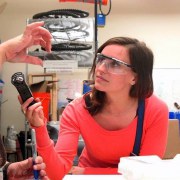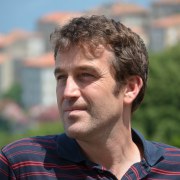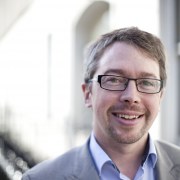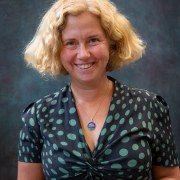Find this session's presentations here.
In line with the ‘Life everywhere’ conference theme, we will explore the challenges of engaging audiences with scientific and technological developments such as exobiology or synthetic biology that raise ethical and societal questions about life.
Among others, we will ask: How can we use biohacking, bio art and speculative design to confront visitors with possible futures? How do we represent extra-terrestrial life forms when we don’t really know what they look like? What do audiences think of the ethics of live experiments on cockroaches?
Join an edgy session, at the crossroads between art, science, ethics and design.
Facilitator
Session speakers
science communicator
Paris
France
New practices in biology, based on collaboration and openness, are now spreading across the world beyond the borders of tradition. Known as “Do It Yourself biology” or "biohacking", they seek through various means to popularize biology and make it accessible to citizens.
Head Public engagement and Exhibition
Geneva
Switzerland
20 years after the discovery of the first extrasolar planet in the World by he Swiss astrophysiociens Michel Mayor and Didier Queloz in 1995, the Natural history muséum of Geneva presents in 2015 a great exhibition about the Extrasolar planets. The very interactive museography mixing with handling, images and films, draft of the adventure of the search of the other worlds since Antiquity until today while inviting scientifics, philosophicals, historiens and artists to share with the public the challenges of the discovery of another livable planet in the universe. This vertiginous search of a form of life elsewhere than on the ground recalls by a mirror effect that among the billion worlds of the Universe, our planet remains single and that it deserves, more than ever, our attention.
Founding Director
Munich
Germany
How can biological art and speculative design help provoke conversations about emerging areas of life sciences, from synthetic biology to new reproductive technologies?
In the context of developing a major new museum to "explore life”, BIOTOPIA at Schloss Nymphenburg in Munich, and also drawing on previous work as founder of Science Gallery in Dublin, I will consider how bio art and speculative design can confront visitors with potential futures.
Director of Innovations
Warszawa
Poland
What if a group of students plays a role of an ethical commission and make a decision about an experiment on animals? What if the animal is a cockroach? How many students votes for and againts - and why?
I will present results of an ethical experiment designed in Copernicus Science Center Biological Laboratory.





